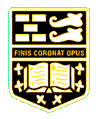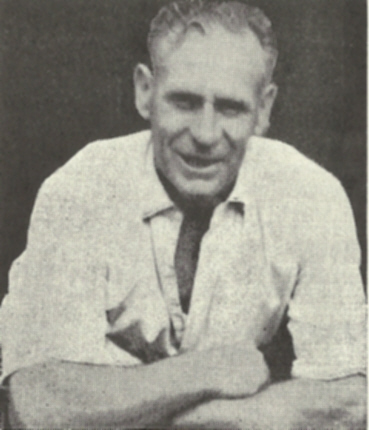|
LORD ATTLEE, the Grand Old Man of the Parliamentary Labour Party, once described his political opponents as 'Licorice Allsorts'. I have no
interest in advertising any particular brand of sweets, but I think it is true to say we are all familiar with an attractive carton, gaily decorated with
illustrations of the goodies to be found inside. Whether they are favourites of yours I wouldn't know, but I must confess they are to me quite
irresistible. There is one potent ingredient common to them all, as the name implies, but they come in all varieties, shapes, sizes and colours.
Come to think of it, so do people. This makes the world, like the sweets in question, interesting and exciting.
The common ingredient in people is human nature, even though we dress it up in infinite variety. We all have in varying degrees the faults and
virtues of humanity. Truly, it takes all sorts to make a world, as the old adage has it. But what sort are you? Are you fully fashioned by parentage
and the circumstances' of life, like a manufactured article, having no say in the final product? Some are very prone to accept this view of themselves,
as it provides a ready-made excuse for all their failures and shortcomings.
What sort are you and what sort do you want to be? Is Goldings that much better for your presence in it, or do we have to try to make excuses for
you? What will you have to look back upon when the time comes for you to leave? Will you be proud of the part you played or have a bad
conscience about it? Well, ask yourself, what sort are you?
R. F. WHEATLEY
PENDING RETIREMENT OF OUR HEADMASTER
DESPITE THE fact that 'time and tide wait for no man', it always comes as a shock when the age of retirement is suddenly just round the corner. I,
with many others, have still to receive this shock, but for Mr. Wheatley the moment of truth is at hand, and he has decided to declare his innings
closed at Goldings after 'twenty-one overs'.
I trust I will be forgiven for the rather weak parallel of cricketing terms, but as all readers are well aware, cricket has been, and still is one of Mr.
Wheatley's greatest loves in the field of sport; and Bottom Field will be the poorer when he no longer takes middle and off, or pounds up to deliver
something unplayable from the bowlers' crease.
However, to make a few points on the more serious side of this unhappy but inescapable event, Mr. Wheatley has been responsible for practically
all the great (and small) changes that have taken place during the post war years, and many of us are aware that it has been a dedicated plan that
Mr. Wheatley has carried out, not allowing hold-ups of any proportion to deter him from his ultimate goal—better conditions for boys and staff.
There have been difficult times, especially in the more recent years, but even so certain reforms have -taken place, which are necessary for the
School's long-term survival.
Let us just look for a moment at some of the structural improvements that have come about: the new and recently re-equipped dining hall and
kitchens; the ablution block; sitting rooms for all houses and modern comfortable bedrooms; the Mac Andrew wing for senior boys and bed
sitting rooms for staff; the new General Subjects building and the extension to the Printing Department. This isn't all of course, but definitely
something that is a visible record of achievement. We all appreciate that no man could have brought about these improvements on his own,
and I know that our Headmaster never fails to acknowledge the help and backing he has always received from his staff here at Goldings and from
those who control the purse strings at our Stepney Headquarters.
During Mr. Wheatley's headmastership the Goldings Committee has been enlarged to include friends of Barnardo's resident in Hertford, who by
reason of their interest in social problems and special knowledge of trade and industry have made a great contribution towards putting into effect
his forward-looking plans. The Advisory Committee for Building Trades, which meets termly, has been of incalculable value to boys training for
these trades, as have also the Special Committees, comprised of experts from the field of Printing, in advising on the modernization of equipment
in this department and the complement of staff required for efficient instruction.
We know that Mr. Wheatley has been especially pleased by the formation recently of a Goldings Development Committee to plan for the future
needs of the School in respect of staffing, buildings and equipment, as well as steady and suitable recruitment of pupils, as this decision is taken by
all of us at Goldings as an earnest of the determination of Barnardo's to keep the School, as ever, the best of its kind and ahead of the times.
1 trust that someone far more qualified than I will write a true appreciation of Mr. Wheatley's service in the Winter edition of the GOLDONIAN,
when I imagine Mr. Wheatley will be sending his farewell message to all his old friends.
ED.
READERS of the GOLDONIAN who are not already aware of our loss, deeply grieved to learn of the death of our Chief Matron, Mrs Embleton,
in February of this year, after a long illness. She and her family first came to Goldings in October, 1945, when Mr. Embleton, now Deputy
Headmaster, took up a teaching appointment as Head of the Horticulture Department. In April, 1952, she accepted an honorary appointment at the
Waterford Verney , where she created and maintained over a number of years a real home atmosphere for the printer apprentices. Many of them,
now young men well established in the trade, will have happy memories of the many social evenings and dances she used to organize for the boys
and girl friends. In September, 1959, she was persuaded to undertake the onerous duties of Chief Matron at Goldings.
Those who only knew Mrs. Embleton during the last year or so, when she was making valiant efforts to continue her manifold duties despite the
weakening effect of her fatal illness, could not fully appreciate the true quality of the impact she made on life and work at Goldings during the
period in which she held this high office. She combined meticulous care and conscienciousness in her duties with a happy and cheerful spirit. She
always undertook the lion's share of work in preparations for social events and was seldom absent from any evening organized for the entertainment
of the boys. She entered into the fun with obvious enjoyment.
In these times, when it is difficult to find residential workers in sufficient numbers to keep a home fully staffed, people in key positions often find
themselves doing two person s work. For most of her time as Chief Matron Mrs. Embleton was in the position of having to carry on without a
Deputy to share the work. All those who knew the circumstances appreciated how much extra strain this placed upon her. With her husband and
family we mourn her passing and the only comfort we can offer is the knowledge that she spent her life in a good cause and left us ail an example
of determination and perseverance in necessary tasks m the face of all obstacles.
R. F. WHEATLEY
MR. F. SHEPPARD
JANUARY, 1959, saw the arrival of Mr. Sheppard to take over the duties of Art and General Subjects master, and before very long we all
appreciated that here we had a man who was prepared to spare no effort to bring about radical improvements, particularly in the field of art.
In the summer of 1961 Mr. Sheppard was appointed Head of School with the retirement of Mr. G. H. White, and in this capacity has been
instrumental in the many changes which have taken place within the educational structure of the school.
Unfortunately at the end of August we shall be losing the valuable services of Mr. Sheppard when he moves down to North Devon to take up the
appointment as Head of the Further Education section of the County Secondary School at Braunton, as well as being Art teacher at the Secondary
School. On behalf of all members of the staff, as well as the boys, I wish Mr. Sheppard every success and happiness in his new appointment, and
thank both he and Mrs. Sheppard and Josephine for all they have done to enhance the social atmosphere of the school during their years with us.
N. T. POWELL
MR. VINCE joined the staff at Goldings in 1955, and from his early days took charge of the propagation section
of the gardening department. Included in this responsible post is the task of maintaining a continuous succession
of bloom in the now famous Goldings 'Plant House', which, if comments from visitors are any guide, he has
accomplished with remarkable credit. Although not normally considered a seasonal occupation, supervising a
glass unit has its exceptionally busy periods and the raising of thousands of bedding and vegetable plants each
spring demands diligent timing, together with a patient appreciation of detail.
Many boys have benefited from his example in this aspect of their training, learning not only the secrets of raising
and growing plants, but have obtained pleasurable satisfaction from assisting in the art of setting-up floral displays
at the many school exhibitions and functions.
Born at Ipswich in Suffolk, Mr. Vince commenced his gardening career in that part of the country upon leaving
school and moved round several jobs, gaining experience all the time. Part of this varied life was spent working
for a landscaping contractor, experience whirh became evident when the Goldings hard tennis courts were under
construction in the winter of 1955-56. His skill ami practical knowledge was further brought to bear in the laying
out of the now obsolete 'play -pen', on the site of the new school block, an area which proved extremely popular
with former Goldings boys, giving them wider scope for practising ball games under restricted. yet controlled conditions. Just prior to joining
Goldings he had the personal honour of maintaining a rather famous private garden, specially laid out by the renowned nurserymen and landscapists,
Messrs. R. C. Notcutt, Ltd. During the last war Mr. Vince saw four full years of active service in the National Fire Service.
L. EMBLETON
|




